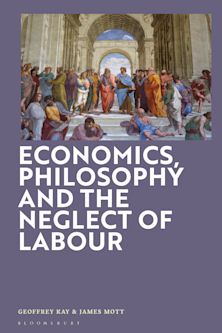- Home
- ACADEMIC
- Philosophy
- Social and Political Philosophy
- Achieving Our World
You must sign in to add this item to your wishlist. Please sign in or create an account
Description
In an age marked by global hegemony and festering civilization clashes, Fred Dallmayr's Achieving Our World charts a path toward a cosmopolitan democracy respectful of local differences. Dallmayr draws upon and develops insights from a number of fields: political theory, the study of international politics, recent Continental philosophy, and an array of critical cultural disciplines to illustrate and elucidate his thesis. In Achieving Our World, Dallmayr contends that a genuinely global and plural democracy and 'civic culture' is the only viable and promising path for humankind in the new millennium.
Table of Contents
Chapter 2 Introduction
Part 3 Globalization and Democracy
Chapter 4 Globalization: Curse or Promise?
Chapter 5 Global Governance and Cultural Diversity: Toward a Cosmopolitan Democracy
Chapter 6 "Asian Values" and Global Human Rights: Tensions and Convergences
Chapter 7 Beyond Fugitive Democracy: Some Modern and Postmodern Reflections
Chapter 8 Achieving Our World Democratically: A Response to Richard Rorty
Part 9 Variations on Self-Other Relations
Chapter 10 Transversal Encounters: Calvin Schrag and Postmodernity
Chapter 11 Border Crossings: Bernhard Waldenfels on Dialogue
Chapter 12 Distancing the Other: Jacques Derrida on Friendship
Chapter 13 Oneself as Another: Paul Ricoeur's "Little Ethics"
Chapter 14 Resisting Totalizing Uniformity: Martin Heidegger on Machenshaft
Chapter 15 Concluding Remarks
Product details
| Published | 16 Oct 2001 |
|---|---|
| Format | Ebook (Epub & Mobi) |
| Edition | 1st |
| Extent | 224 |
| ISBN | 9780742569294 |
| Imprint | Rowman & Littlefield Publishers |
| Publisher | Bloomsbury Publishing |
About the contributors
Reviews
-
Achieving Our World is vintage Dallmayr. By this I mean that the book is first a clear and succinct overview of a cluster of literature on a critical issue-in this case it is Globalization and the problem of self-identity-and second, it navigates the precarious waters that run between theory and practice. Dallmayr has been and continues to be in the rare company of such thinkers as Anthony Giddens and Richard Bernstein in his ability to survey and present vast bodies of material in a way that is clear, critical, and timely and then take that survey to a develop a position. Thus, the work functions well on two levels: as a critical survey of important literature and as a further development of Dallmayr's own position within this complex of discussions. He achieves both of these in a style and language that will allow the book to be of interest to specialists and generalists alike.
Dr. James Buchanan, Xavier University
-
...globalization navigates a path that weaves in and out, between and through, standard categories and false dichotomies. What distinguishes Achieving Our World and Dallmayr's work more generally is the extraordinary care with which he undertakes the journey. Dallmayr writes about globalization from another place, with another spirit. He tells the story of mediations as a mediator, but without compromise on principles....
American Political Science Review
-
In Achieving Our World, Fred Dallmayr considers crucial concerns of modern society in an imaginative and insightful way, relying on philosophical and cultural resources in a manner that brings ideas to life. The prose is clear despite dealing with often difficult material. Dallmayr is an excellent 'reader' and interpreter of the most important and contested achievements of postmodern thought. He creatively combines reliance on other thinkers with his own clarifying and independent assessments. These qualities, taken together, make for a fine book.
Richard A. Falk, Albert G. Milbank Professor of International Law Emeritus, Princeton University
-
...globalization navigates a path that weaves in and out, between and through, standard categories and false dichotomies. What distinguishes Achieving Our World and Dallmayr's work more generally is the extraordinary care with which he undertakes the journey. Dallmayr writes about globalization from another place, with another spirit. He tells the story of mediations as a mediator, but without compromise on principles.
American Political Science Review



































